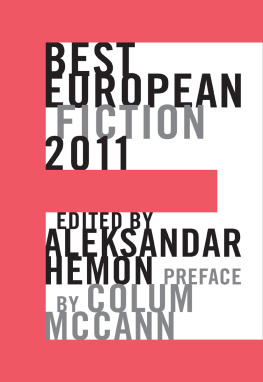Aleksandar Tisma - The Book of Blam
Here you can read online Aleksandar Tisma - The Book of Blam full text of the book (entire story) in english for free. Download pdf and epub, get meaning, cover and reviews about this ebook. year: 2016, publisher: NYRB Classics, genre: Prose. Description of the work, (preface) as well as reviews are available. Best literature library LitArk.com created for fans of good reading and offers a wide selection of genres:
Romance novel
Science fiction
Adventure
Detective
Science
History
Home and family
Prose
Art
Politics
Computer
Non-fiction
Religion
Business
Children
Humor
Choose a favorite category and find really read worthwhile books. Enjoy immersion in the world of imagination, feel the emotions of the characters or learn something new for yourself, make an fascinating discovery.
- Book:The Book of Blam
- Author:
- Publisher:NYRB Classics
- Genre:
- Year:2016
- Rating:5 / 5
- Favourites:Add to favourites
- Your mark:
- 100
- 1
- 2
- 3
- 4
- 5
The Book of Blam: summary, description and annotation
We offer to read an annotation, description, summary or preface (depends on what the author of the book "The Book of Blam" wrote himself). If you haven't found the necessary information about the book — write in the comments, we will try to find it.
The Book of Blam — read online for free the complete book (whole text) full work
Below is the text of the book, divided by pages. System saving the place of the last page read, allows you to conveniently read the book "The Book of Blam" online for free, without having to search again every time where you left off. Put a bookmark, and you can go to the page where you finished reading at any time.
Font size:
Interval:
Bookmark:
Aleksandar Tisma
The Book of Blam
ABOUT THE AUTHORS
ALEKSANDAR TI MA (19242003) was born in the Vojvodina, a former province of the Austro-Hungarian Empire that had been incorporated into the new kingdom of Yugoslavia after the First World War. His father, a Serb, came from a peasant background; his mother was middle-class and Jewish. The family lived comfortably, and Tima received a good education. In 1941, Hungary annexed Vojvodina; the next year Timas last in high school the regime carried out a series of murderous pogroms, killing some 3,000 inhabitants, primarily Serbs and Jews, though the Timas were spared. After fighting for the Yugoslav partisans, Tima studied philosophy at the University of Belgrade and went into journalism. In 1949 he joined the editorial staff of a publishing house, where he remained until his retirement in 1980. Tima published his first story, Ibikas House, in 1951; it was followed by the novels Guilt and In Search of the Dark Girl and a collection of stories, Violence. In the 1970s and 80s, he gained international recognition with the publication of his Novi Sad trilogy: The Book of Blam (1972), about a survivor of the Hungarian occupation of Novi Sad; The Use of Man (1976), which follows a group of friends through the Second World War and after; and Kapo (1987), the story of a Jew raised as a Catholic who becomes a guard in a German concentration camp. Tima moved to France after the outbreak of war and collapse of Yugoslavia in the early 1990s, but in 1995 he returned to Novi Sad, where he spent his last years.
MICHAEL HENRY HEIM (19432012) was a professor of Slavic languages at the University of California, Los Angeles. Fluent in eight languages, Heim was the recipient of many awards and translated such writers as Anton Chekhov, Milan Kundera, Gnter Grass, Bohumil Hrabal, Danilo Ki, and Dubravka Ugrei. He is the subject of The Man Between: Michael Henry Heim & A Life in Translation, edited by Esther Allen, Sean Cotter, and Russell Scott Valentino.
CHARLES SIMIC is a poet, essayist, and translator. He has published some twenty collections of poetry, six books of essays, a memoir, and numerous translations. He is the recipient of many awards, including the Pulitzer Prize, the Griffin Poetry Prize, and a MacArthur Fellowship. Among Simics recent works are New and Selected Poems: 19622012, The Lunatic, and Confessions of a Poet Laureate, a book of essays that was published by New York Review Books as an e-book original. In 2007 Simic was appointed the fifteenth Poet Laureate Consultant in Poetry to the Library of Congress.
INTRODUCTION
The Book of Blam is the first of three novels about the Holocaust in Yugoslavia written by the Serbian writer Aleksandar Tima, the other two being The Use of Man and Kapo. It was published in 1972 in Belgrade and was well received, as were the two books that followed. Timas work was translated into seventeen languages and he became internationally known. Although a child of a Serbian father and Jewish mother, who lost relatives on his mothers side in the Holocaust, Tima came to the subject of the camps late: He attributed this new interest of his to a trip he took to Poland in the 1960s and a visit he made to Auschwitz that reminded him of the horrors he registered as a boy but had learned not to think about in order to keep his sanity. The trip to Poland made him realize that he had a history he could not run away from. As Timas compatriot Danilo Ki noted, One doesnt become a writer accidentally, ones biography is the first and the greatest cause. Tima would have agreed. In one of his journals he describes himself as a bug who had survived the bug spray and whose role now is to convey to the descendants of the killers the atrocities their fathers and grandfathers perpetrated on their millions of victims.
Tima was born in 1928 in Horgo, a town on the border of Serbia and Hungary, where thousands of Syrian war refugees lately have massed while waiting to be allowed passage to Western Europe. His father came from Lika, an impoverished region in western Croatia inhabited by many Serbs. Though his parents, expecting him to become a priest, sent him to school in Serbia, on graduation he went to work for a wholesaler and eventually started a business importing fruit from the south. Timas mother was Jewish Hungarian. She grew up in a small village in Hungary where her father ran a small, barely thriving store. She met her future husband at her aunts rooming house in Horgo where he used to stay on his business trips. The newlyweds settled in Novi Sad, the largest and most multiethnic city in the region, where Tima lived for the rest of his life and wrote his many books, including The Book of Blam.
In April 1941, when Tima was thirteen years old, Yugoslavia was invaded and occupied by German, Italian, Hungarian, and Bulgarian troops. Vojvodina, the area north of Belgrade, where Novi Sad is situated, was divided into three zones: one occupied by Hungary, one by the newly founded Croatian fascist state, and the rest under German control. Serbs, who had settled in the region after World War I, when the Austro-Hungarian Empire was dissolved and Yugoslavia came into existence, were to be deported; Jews, if they did not fall into the hands of the Nazis to be taken to Serbia and gassed in mobile gas vans, were persecuted or perished in a series of raids, the most notorious of which took place in Novi Sad. There, over a period of three days, starting on January 20, 1942, some 1,400 Jews and Serbs, including women and small children, were led at gunpoint onto the frozen Danube, shot in the back, and shoved into holes in the ice. Tima and most of his family were spared thanks to a Hungarian neighbor who misled the soldiers knocking on doors and searching for people on their list, but his beloved grandmother Theresa Miller was rounded up with several hundred other Jews and Serbs and was on her way to the banks of the Danube to be killed when a cable arrived from military authorities in Budapest ordering an end to the mass slaughter.
Of course, the persecution and killings continued. In 1942 all Jews and Serbs between the ages of twenty-one and forty-eight were conscripted into forced labor battalions. Some 4,000 Jews from Baka and Baranja were sent to Ukraine, near the front, where they succumbed to disease and starvation or were murdered; others were put to work in copper mines and on the railroads in Serbia and Hungary. In March 1944 when Hungary realized that it had taken the losing side in the war and began to negotiate with the Allies, Germany seized control of the country and the occupied territories. Any remaining Jews there had been approximately 20,000 in Vojvodina before the war; now there were 4,000were collected and sent into camps. Some Jews had already left the region since until that March territories held by Hungary were safer than neighboring Serbia and Croatia. Tima and his mother were among them. They had traveled to Budapest in 1942 and he had enrolled at the university to study economics (changing after a semester to French). He even got a job working in an office. As he later explained to an interviewer, students enjoyed a privileged status in Hungary during the war. In 1944, Tima and his classmates were conscripted into labor brigades to dig trenches against the advancing Russian tanks, but except for sleeping in tents they were not otherwise mistreated. His mother and grandmother also survived, though living in mortal fear as they watched friends and relatives being taken away to the camps.
All my novels are autobiographical, Tima said, explaining that he is not recounting his life but using elements of his experience in them. His central characters without exception share his own sense of alienation. Even as a child, he said that he was aware of being different and kept asking himself whether that was really true. He felt he didnt belong, only pretended to, imitating peoples voices, accents, phrases, deeds, while remaining an outsider. Asked in a census which nationality he belonged to, Tima checked off
Font size:
Interval:
Bookmark:
Similar books «The Book of Blam»
Look at similar books to The Book of Blam. We have selected literature similar in name and meaning in the hope of providing readers with more options to find new, interesting, not yet read works.
Discussion, reviews of the book The Book of Blam and just readers' own opinions. Leave your comments, write what you think about the work, its meaning or the main characters. Specify what exactly you liked and what you didn't like, and why you think so.

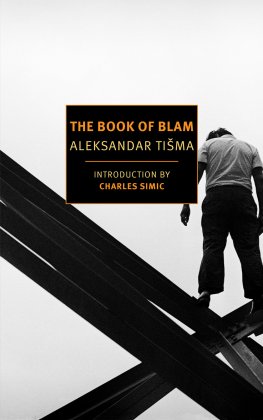
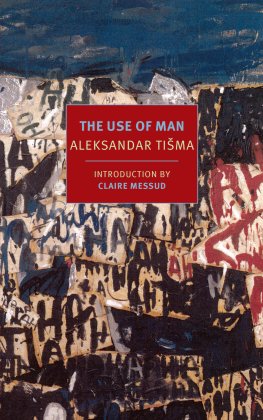
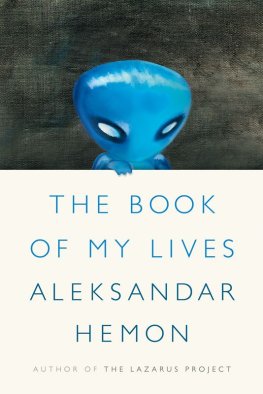
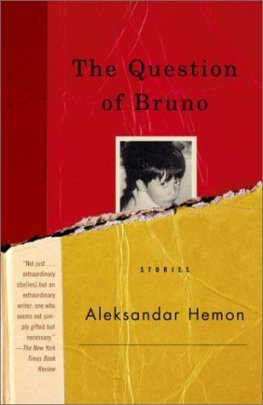
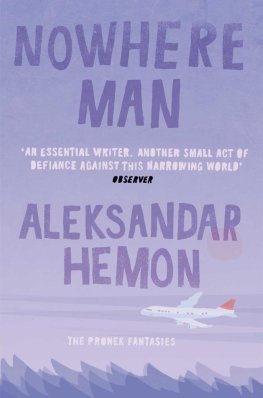
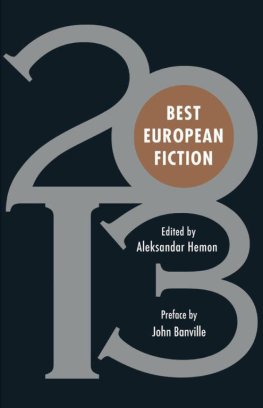
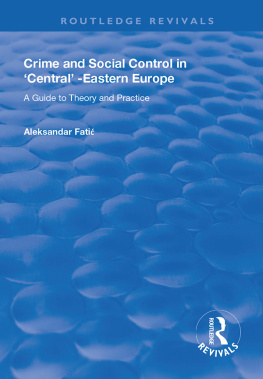

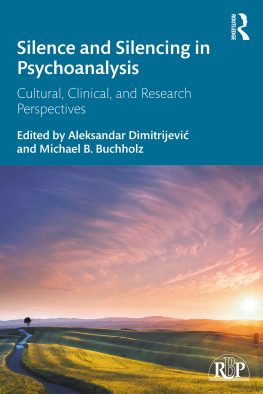
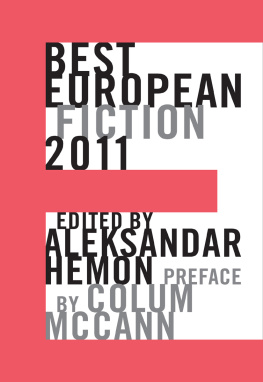
![W. Michael Kelley [W. Michael Kelley] - Calculus I](/uploads/posts/book/119087/thumbs/w-michael-kelley-w-michael-kelley-calculus-i.jpg)
